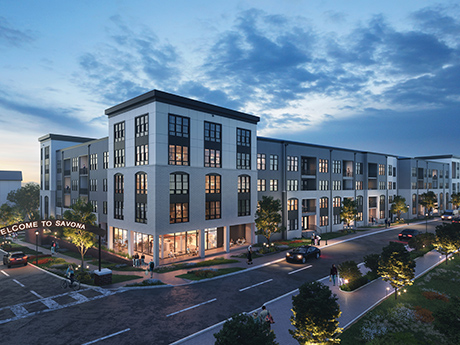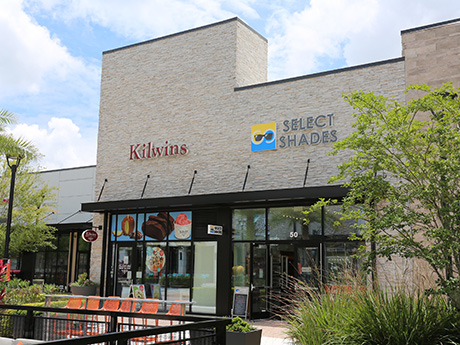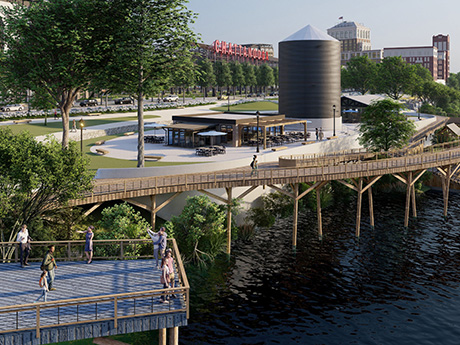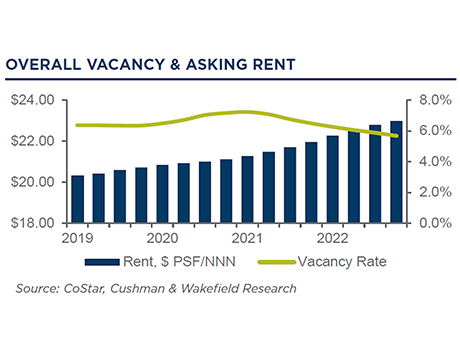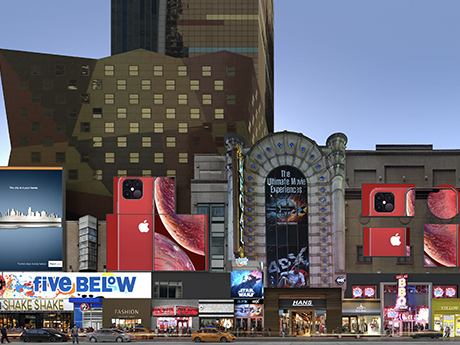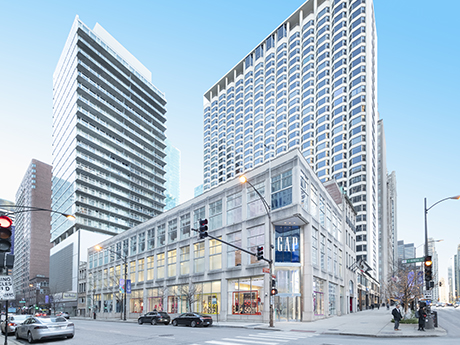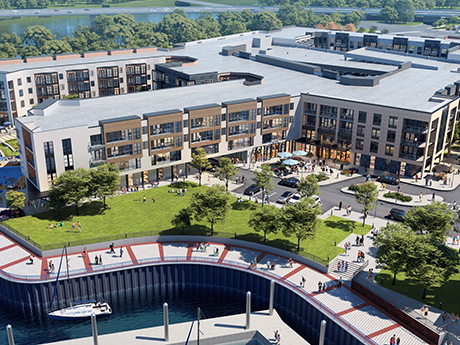Brokers and developers describe the two-state region as one that poises retailers for success. Retail following rooftops has long been an adage of the commercial real estate industry, and North Carolina and South Carolina are proving to be a case study in that very pattern. Retail brokers and developers working in the two states say that despite the trials of the past few years, the region, which offers a climate friendly to residents and retailers alike, is performing well and proving the calls of retail’s demise alarmist at the least, …
Features
Of all the commercial real estate sectors, retail has inarguably been through more challenges over the last decade with the advent of online shopping and the concurrent influx of people to cities — leaving suburban shopping centers and malls to struggle for tenants — and then, of course, the pandemic. Many retailers, developers and owners simply gave up. Heritage Partners CEO Terry Richardson saw opportunity. “We have developed, owned and managed my own properties, constantly strategizing for the best location, tenant mix, financial returns — and monitoring trends,” says Richardson. …
Brokers and developers say the region, where retail is outperforming expectations, offers a warm embrace and opportunity for residents and retailers alike. Skies aren’t the only thing that are sunny in North Florida as the region’s retail market is exceeding expectations and defying macroeconomic headwinds. Michael McNaughton, chief operating officer at Sleiman — a shopping center owner and developer based in Jacksonville — says that the region’s outlook is “extremely bright” heading into the new year. Though not without their challenges, recent months have seen strong property-level performance of retail …
On the banks of the Tennessee River, Urban Story Ventures is planning a 120-acre mixed-use, $4 billion development called The Bend that promises to enliven downtown Chattanooga — a city that already has a vibrant arts and entertainment scene. Urban Story purchased the land for the project in 2018. The site originally housed iron and steel mills, and most recently served as a manufacturing campus for Alstom Power, which closed in 2016. The site was remediated in later years. Since acquiring the property, Urban Story has rezoned the property and …
Chicago — Shopping center vacancy reached a record low during the fourth quarter of 2022, according to a report by Cushman & Wakefield. Vacancy rates declined 20 basis points quarter over quarter to 5.7 percent. Of the 81 markets tracked by the firm, 66 experienced positive net absorption. Chicago saw the highest net absorption with 1 million square feet, followed by 788,000 square feet in Phoenix; 574,000 square feet in Atlanta; 422,000 square feet in Denver; 397,000 square feet in Washington, D.C.; 392,000 square feet in Dallas/Fort Worth; and 353,000 …
The New York City retail market is currently functioning like an episode of The Price Is Right. Developers, investors, brokers and operators are all trying to attach fair values to rents and sales prices for spaces of all sizes and submarkets. But after a tumultuous period marked by a global pandemic and record inflation, followed by a string of severe interest rate hikes, accurately assigning those numbers is easier said than done — at least in some submarkets. According to data from JLL, at the end of the third quarter, the …
From Physical Upgrades to New Merchandising, Owners Are Reimagining Philadelphia’s Shopping Centers
Philadelphia is known for many things, from being the City of Brotherly Love to a city rich in history, art, culture and food. As a result, the region is desirable for many residents and visitors and has been recognized in real estate circles for its housing and retail development opportunities. Throughout the pandemic, greater Philadelphia has lent itself to commuters, residents, tourists and hybrid employers by providing convenient access to other East Coast cities, vast amenities and outdoor recreation spaces, as well as unique dining, entertainment and shopping experiences. Recognizing …
Chicago Update: While Some Tenants Have Vacated Storefronts, Other Retailers Have Expanded
This summer, Canadian women’s fashion retailer Aritzia signed a lease for 46,000 square feet at 555 N. Michigan Ave. for its fourth Chicago-area location. At the time of the lease signing, the deal represented the largest completed transaction on the Magnificent Mile in nearly a decade and the first flagship deal since 2019, according to CBRE. Athletic footwear and apparel retailer HOKA opened its first Chicago pop-up store earlier this year in new ground-floor retail space at 444 N. Michigan Ave., an office building rising 36 stories. HOKA opened its …
The changes in the real estate world due to developments in technology and the COVID-19 pandemic are enormous. The retail shopping center of today would be unrecognizable a decade ago. But we live in a world of change, and so we must adapt. Landlords are inventing creative ways to rebrand, repurpose and reinvigorate shopping centers and strip malls in this new world of retail. The typical shopping center once consisted of several anchor tenants — national department stores, clothing chains, and supercenters — supported by smaller retail stores. You would …
It’s a challenging world right now. Inflation, rising interest rates, persistent supply chain lags and labor shortages are affecting the retail and industry. That’s to say nothing of the always changing retail environment. But there are also got consumers who are ready to put COVID behind them. Who are looking for a reason to venture out, be entertained and spend some money (though maybe not as much money, thanks to inflation). You also have shopping center owners who are quite eager to give these consumers what they want. While architects …


